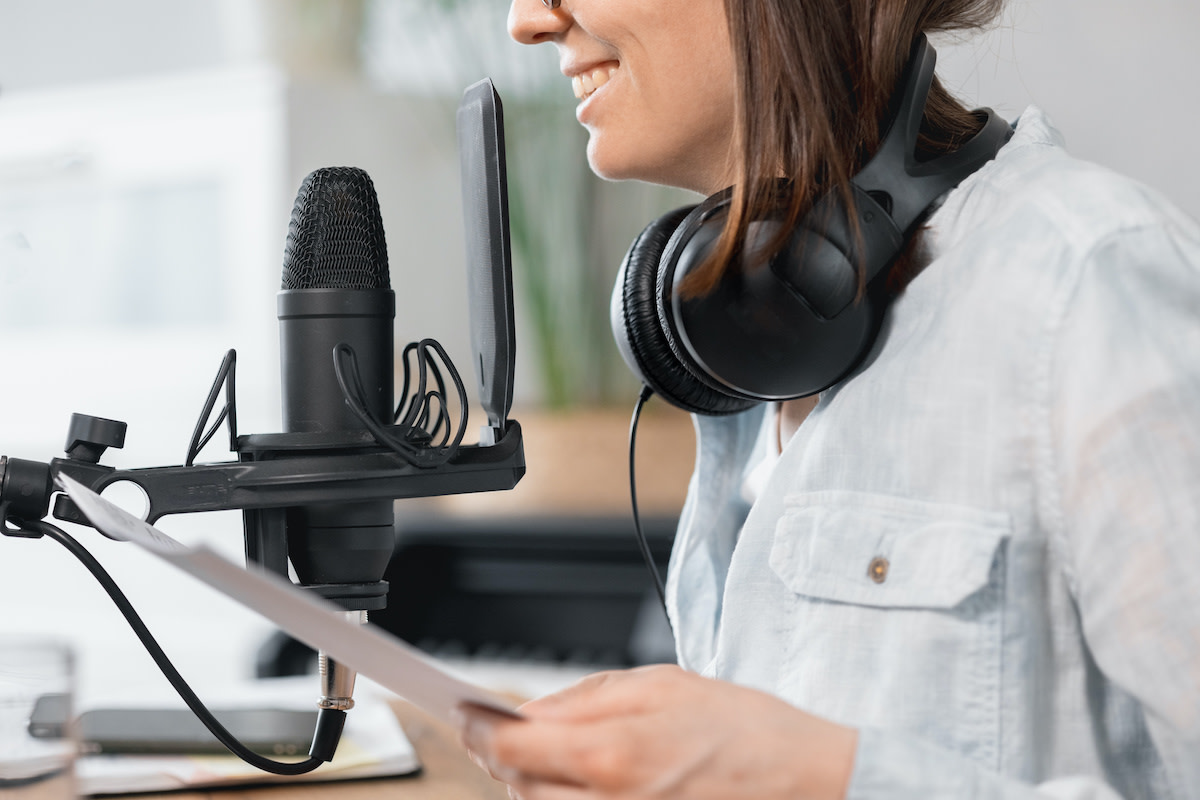Podcast Tips: 9 Tips for Improving Your Podcast
Written by MasterClass
Last updated: Sep 14, 2021 • 3 min read
Learn about the post-production process, what makes for great podcast content, why the most successful podcasts have high-quality audio, and other podcast tips.
Learn From the Best
What Is a Podcast?
A podcast is a collection or series of digital audio files that are made available for downloading or listening via the internet. Each individual audio recording is known as a podcast episode. Podcasts are typically hosted by an individual or co-hosts who lead a conversation, share stories, or report the news. The creator of a podcast is known as a podcaster. Podcasts are hosted on streaming applications such as Spotify, Stitcher, iTunes, Google Podcasts, or Apple Podcasts (the podcast app that comes with iOS).
The history of podcasting began with the creation of the iPod. In fact, the word "podcast" is a portmanteau—a combination of the word "iPod" and "broadcast."
9 Tips for Improving Your Podcast
If you've learned how to start a podcast and are ready to take your own podcast to the next level, consider these podcasting tips.
- 1. Create a podcast template. You can easily improve your workflow by creating a template for each podcast episode. The template should determine the podcast format and include pre-recorded podcast intros and outros. To help set expectations for the listener, the best podcasts introduce the template starting with the first episode. You can always introduce or explore new templates for your podcast, but consider maintaining the same template for each season to avoid a jarring experience for the listener.
- 2. Improve your audio quality with the right recording equipment. The right podcast equipment can help improve your sound quality by making your audio clearer, less harsh, and more reliable. Whether you're recording your podcast with in-person interviewees, with another podcast host, or over Zoom or Skype, having the right equipment can help improve the audio quality. Instead of using the built-in microphone on your device, consider purchasing a USB microphone with a pop filter. Starting with high-quality audio has the added benefit of making the podcast editing process easier later on.
- 3. Record in a quiet environment. Studios provide the best environment for podcast recording, but a small, quiet room such as a closet can work well for at-home recording. Small spaces with soft surfaces reduce the potential for background noise and echoes that could make your audio sound messy.
- 4. Explore free recording and editing software first. There are several audio editing and recording software options available on the market, making it easy to find software that will work for you. Most entry-level recording software (such as GarageBand or Audacity) is free and suitable for the needs of first-time podcasters. If you're looking to have more control over the editing process or need specific sound effects, consider purchasing plug-ins before buying entirely new software.
- 5. Include intro music. Set the right tone for your podcast by kicking off each episode with intro music. You could record your own, hire a musician, or use royalty-free music that can be found for free online.
- 6. Include eye-catching cover art. Podcast cover art is the first thing potential listeners will see while scrolling through podcast directories. Be sure that your cover art includes your podcast name and gives new listeners an idea of what your show is about.
- 7. Include helpful show notes. Show notes appear alongside the podcast episode. Show notes can contain a transcription of the audio, helpful links, credits, or a brief description of the episode.
- 8. Promote your podcast by publishing supporting materials online. Promote your podcast by creating a podcast website. Blogging about new episodes and related topics you’re passionate about is a great way to engage new podcast listeners and improve your search engine optimization, or SEO. SEO helps position your website on search results pages and is one of the best tools for capturing potential new subscribers. An established website can also help support future monetization efforts like sponsored content or podcast merchandise.
- 9. Publish your podcast on multiple hosting platforms. There are several popular podcast hosting services that will host your podcast at no cost. Making your podcast as widely available as possible will help broaden your audience.
Learn More
Get the MasterClass Annual Membership for exclusive access to video lessons taught by the world’s best, including LeVar Burton, Samuel L. Jackson, Nancy Cartwright, Issa Rae, Steve Martin, and more.
